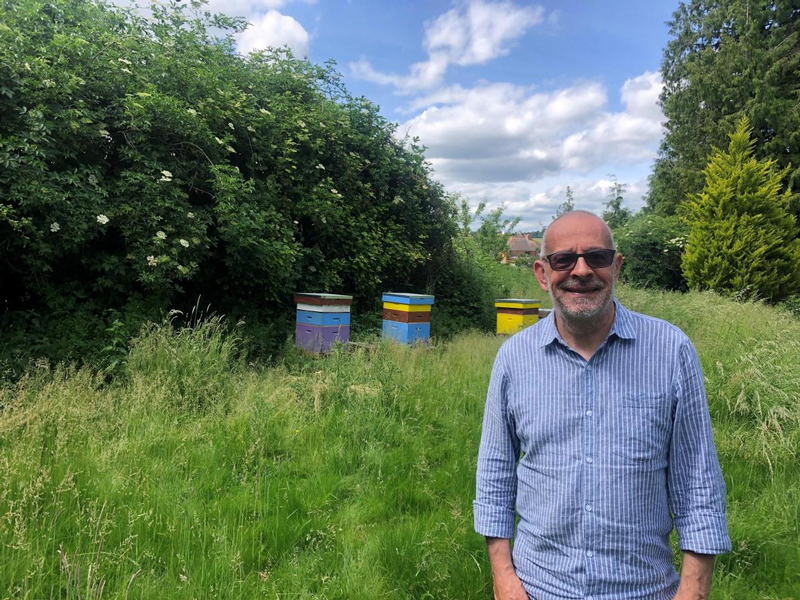Care home owner plans to install 500 beehives and train homeless to be beekeepers
Chris Bialan, who co-owns five care homes, has launched a campaign to boost the number of bees in the UK by building 500 new beehives and giving them to people to foster.

Bee Mission, a community interest company, is appealing for foster homes in Hampshire and Dorset and is planning to train up homeless people to work for the bee project, which includes becoming beekeepers as well as packing and selling the honey.
Since 2019, Mr Bialan and fellow Bee Mission director Amy Foster have been helping rough sleepers in Bournemouth by cooking and distributing food up to three times a week.
Mr Bialan who jointly owns five care homes including Allenbrook Nursing Home in Fordingbridge as well as Kings Lodge Centre for Complex Care in Surrey, has been trialling the scheme at his care homes by installing beehives in the grounds of the homes.
'I realised the grounds at my care home sites were a great place to start'
He said: “I got thinking about all the gardens and available space out there that could be used for hives, and then I realised that the grounds at my care home sites were a great place to start.”
After the hives became a success at Allenbrook Nursing Home, he realised there are a lot of people worried about the plight of bees but are unsure about installing a hive as they don’t know anything about hives or bees and don’t know how to look after them.
“So, what if we could solve that problem? What if we could supply the hives, and either train people up to look after their own hives or send our beekeepers round to manage them?” said Mr Bialan.
Out of this Bee Mission was created with its mission to get 500 beehives installed. It promises to cover the costs of the hive and keep the hives fully maintained by one of its beekeepers. Alternatively the person fostering the hive can be trained by the Bee Mission to care for the hive themselves.
A typical beehive is around 22 by 16 inches, and you need roughly five feet of space around each hive.
Each hive can contain up to 50,000 bees and can produce 40 to 50kg of honey.
Bee Mission also wants to encourage people to plant wildflowers and plants that bees like to ensure there is enough pollen for both the honeybees and the native wild bees.
The company is currently looking for land to rent with space for outbuildings, so they can have a community training and display centre, workshop and home for their own hives and bee-friendly flowers.
To find out more about the work that Bee Mission do and how to foster a hive, go to www.beemission.co.uk.
Latest News
 29-Jul-24
Dementia Bus gives carehome.co.uk staff insight into life with dementia
29-Jul-24
Dementia Bus gives carehome.co.uk staff insight into life with dementia
 01-Mar-24
Find out the top care homes in 2024
01-Mar-24
Find out the top care homes in 2024
 21-Mar-23
UK's top care homes in 2023 revealed
21-Mar-23
UK's top care homes in 2023 revealed
 03-Jan-23
carehome.co.uk launches free care helpline
03-Jan-23
carehome.co.uk launches free care helpline
 13-Dec-22
5 mins with Emily Whitehurst, chief operating officer for Constantia Healthcare
13-Dec-22
5 mins with Emily Whitehurst, chief operating officer for Constantia Healthcare